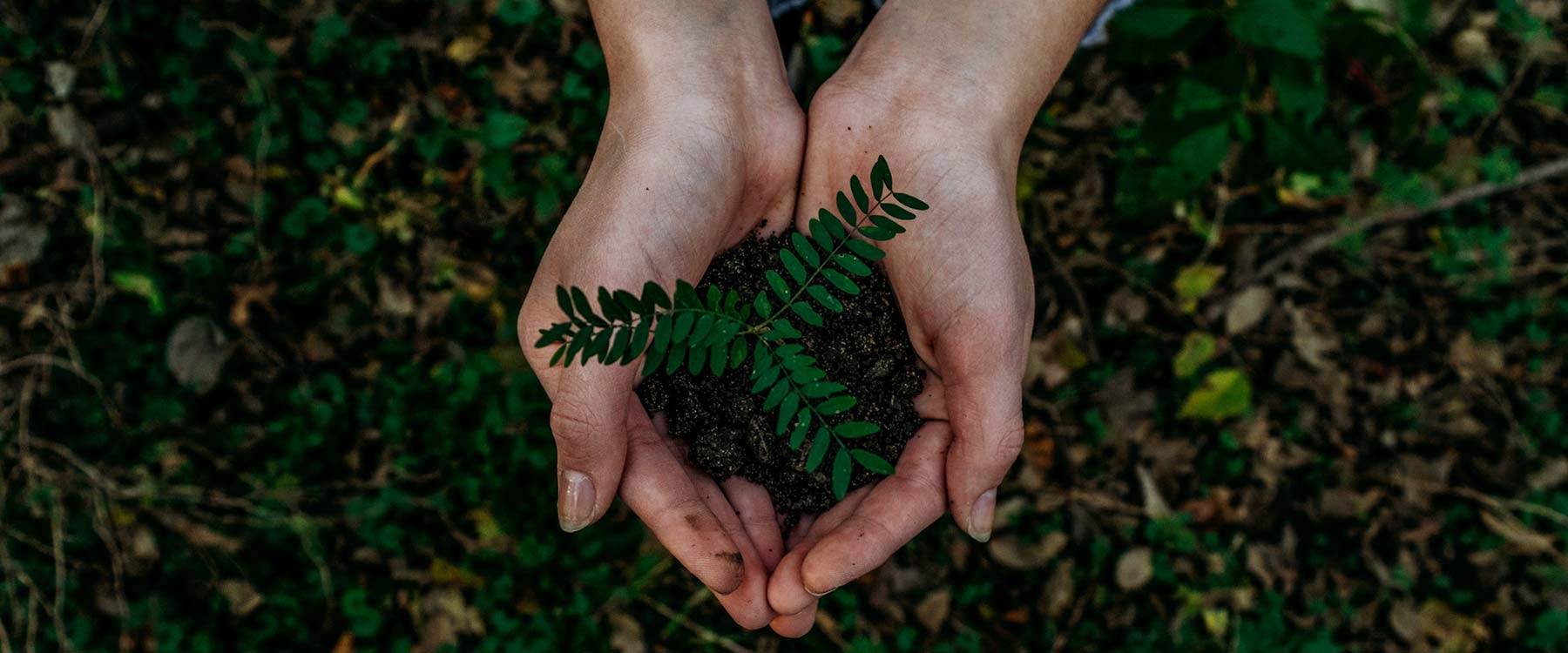Responsible Tourism
Responsible Tourism means being mindful of the impact that tourism has on the environment, the animals and the people. It means to have a version of tourism that involves and benefits the local communities while at the same time avoiding exploitation of the people, wildlife and the natural environment.
We at Jungle Camps India believe that, while we may be far from perfect but it is crucial to make continuous progress in the desired direction. Sustainability for us is an on-going process of continuous learning and adaptation.
Commitment
Promoting tourism in remote areas comes with its share of responsibilities that cannot be ignored. We are committed to the values and ethos of sustainability and it forms the corner stone of our decision making as well as day to day administrative processes. We are not perfect but we hold ourselves accountable and make continuous efforts to better ourselves with every passing year.
We have initiated numerous sustainability and conservation measures across all our lodges and there are new measures that are currently being implemented. We are also signatories of TOFT (Travel Operators for Tigers) and get our lodges reviewed by them and implementing their suggestions. Additionally, there is an internal lodge checklist that we have formed. This list is used as a self audit process where we measure our performance against the various criteria and takes step to bridge any gaps that may arise.
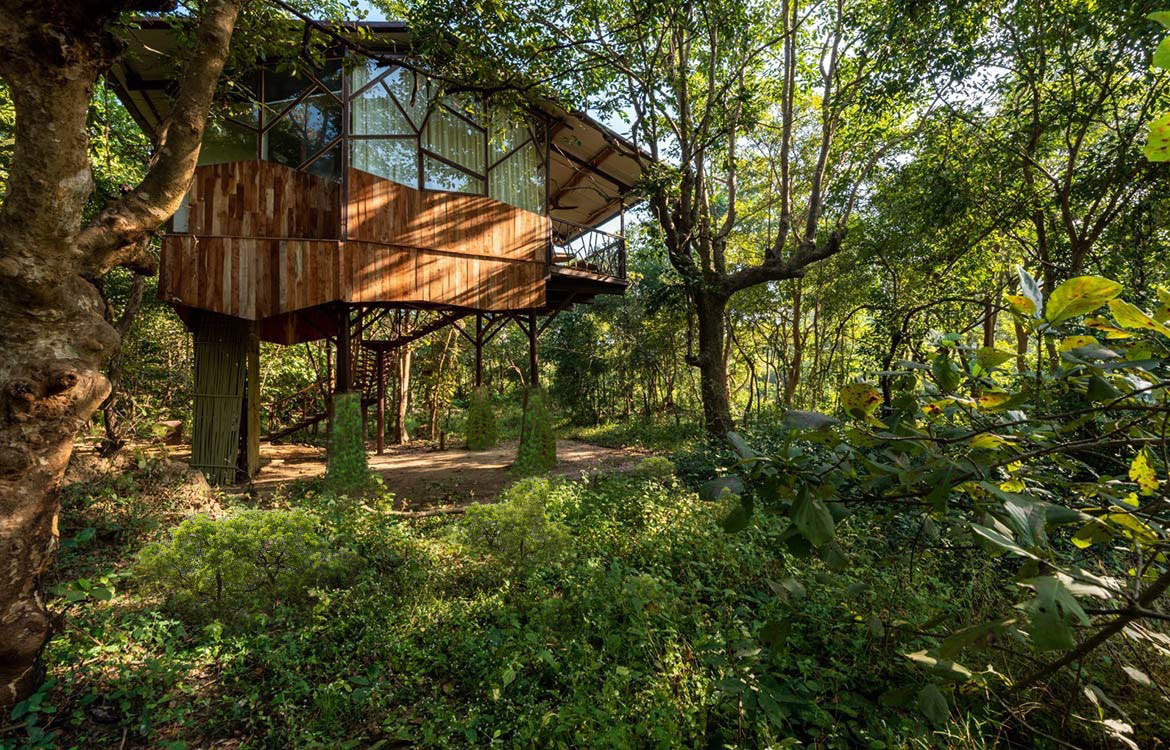
Lodge at Kanha National Park
“ You cannot get through a single day without having an impact on the world around you. What you do makes a difference, and you have to decide what kind of difference you want to make. ”
–Jane Goodall
Construction & Design
Created with a deep love for wildlife and nature and our commitment to the ethos of responsible tourism, our range of accommodations have been designed to be environmentally sensitive. From site selection and the brief to the architect, care is taken to ensure that the lodge is designed, constructed and then operated in an environmentally and socially sensitive manner.
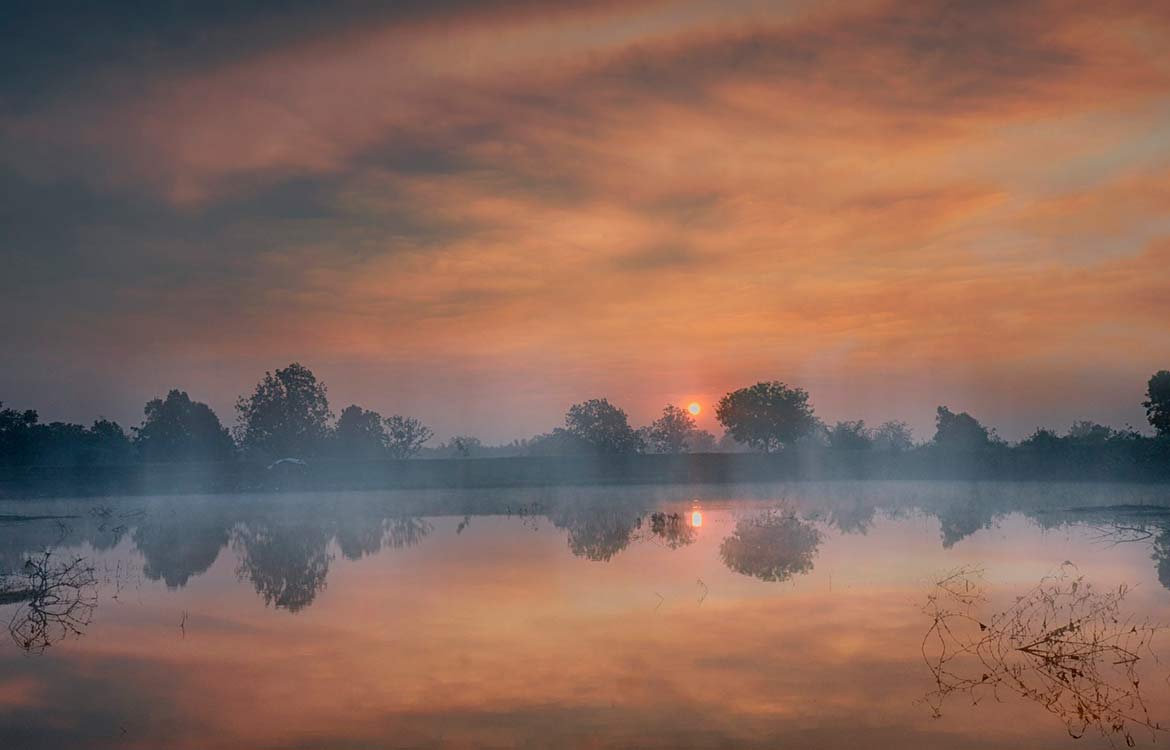
View of the lake from luxury tents at Pench Jungle Camp
The construction is done in less than 10% of the lodges’ land area. The rest of the estate is usually free from human interference. Additionally the estate has also been rewilded to supplement the existing flora to create natural forests around the lodges. These forests act as a home to a variety of birds, mammals and other micro fauna and at the same time also act as corridors for the wildlife from the nearby buffer areas. Named eco-parks (abbreviated for ecological parks), these natural forests provide our guests an interactive and participatory experience in the lodge itself.
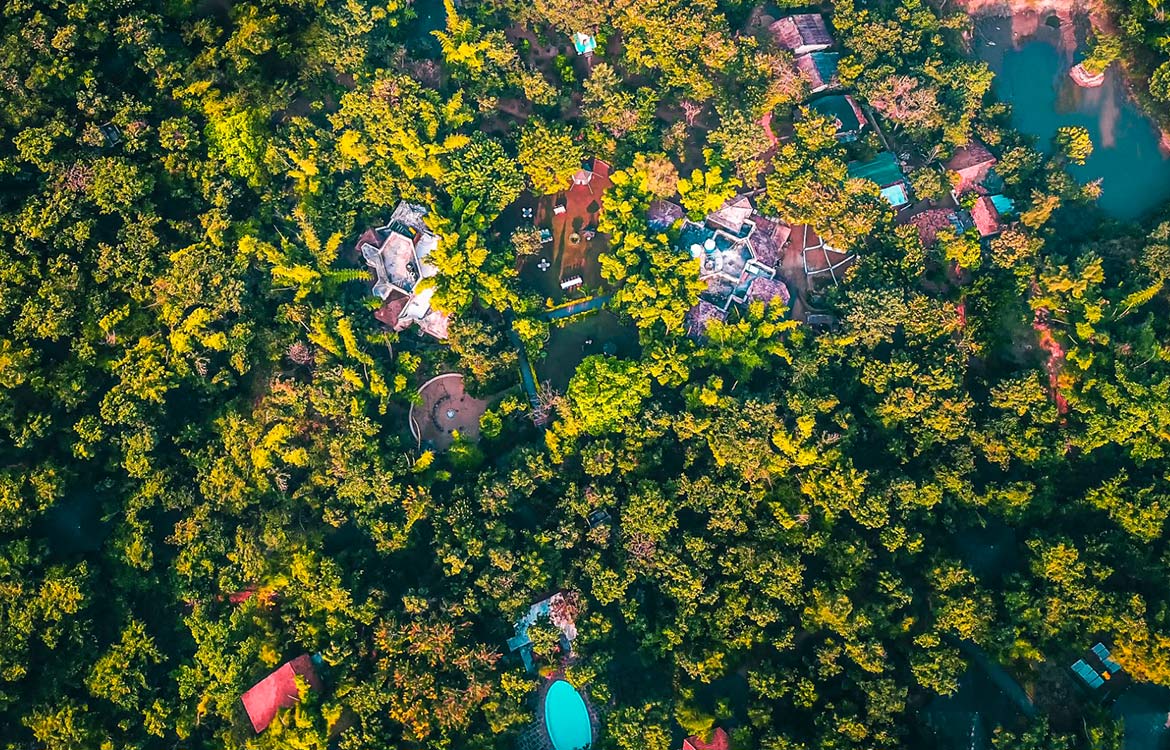
Aerial view of Pench Jungle Camp
We have adopted various sustainable construction techniques, some of which are using local materials and manpower, creating large windows and spaces to provide natural light, making the building more energy efficient, furniture and other interiors are made from recycled & reclaimed wood and materials.
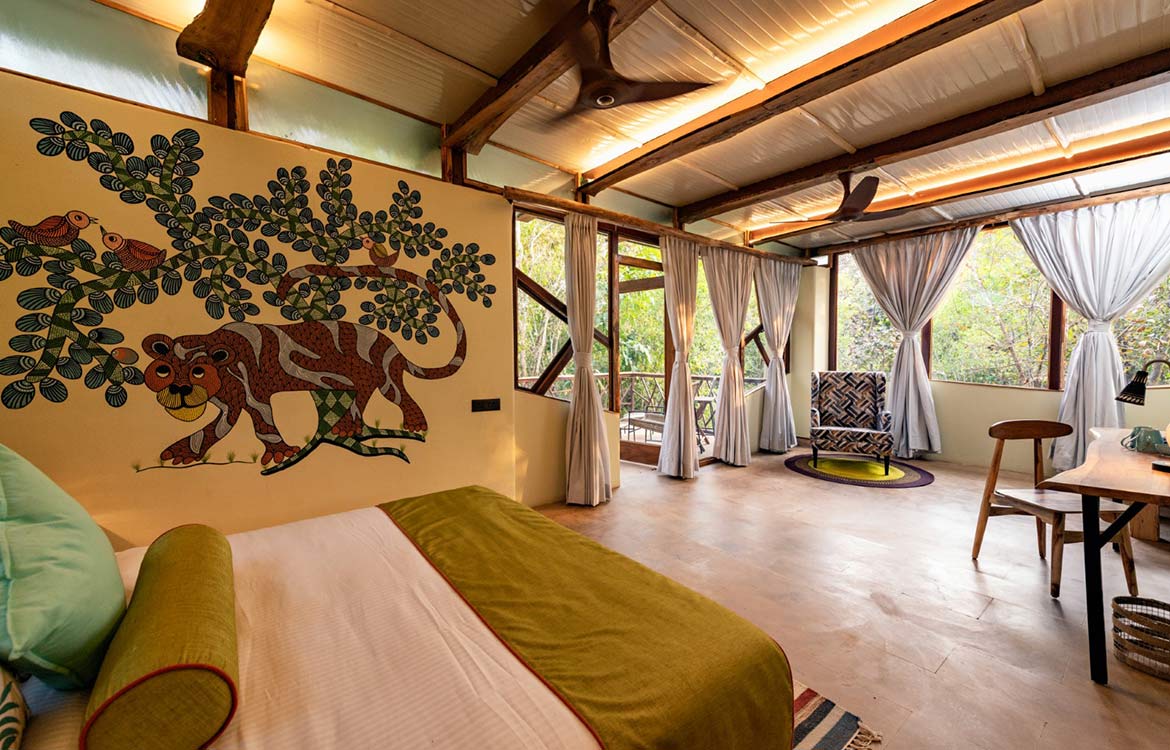
Local artists are employed to paint the walls of the rooms.
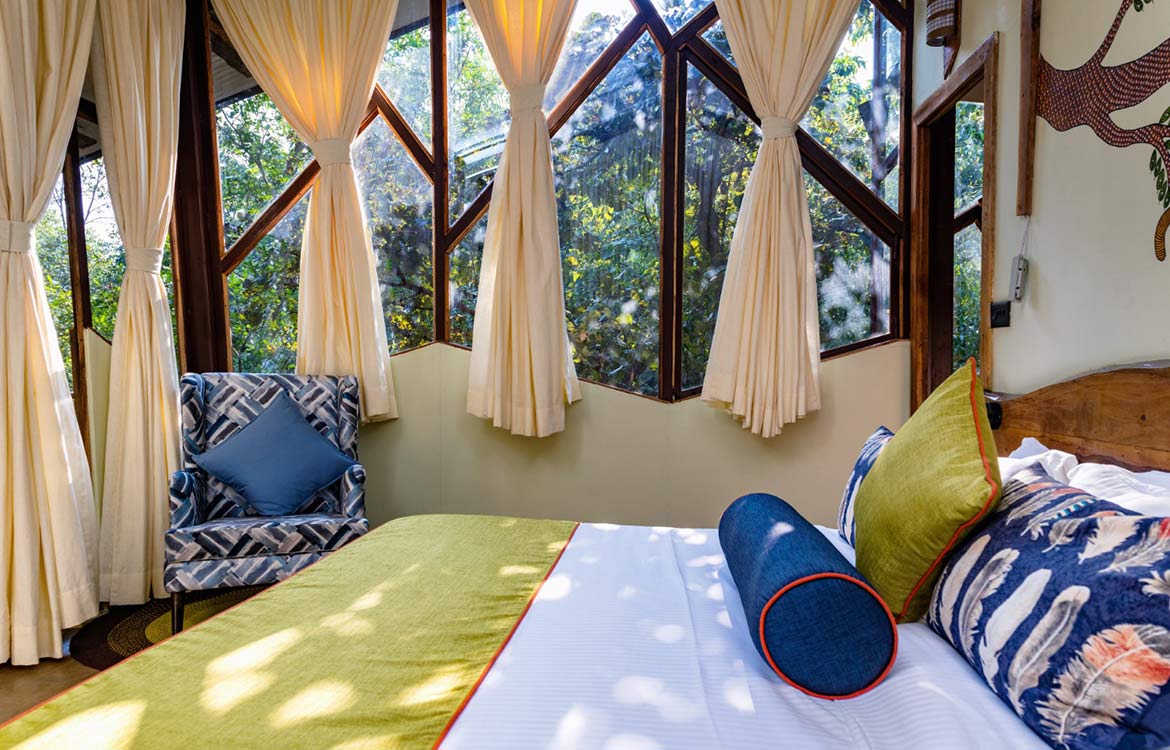
Usage of big windows to provide ample natural light
“ I am only one, but I am one. I cannot do everything, but I can do something. And I will not let what I cannot do interfere with what I can do.”
–Edward Everett Hale
Conservation
We realize the importance of a healthy wildlife habitat. Our policy is to practice sustainable wildlife tourism under high standards and do our bit to protect the wildlife of the area. Our team often takes part in the voluntary activities which are initiated by the forest department like census for various wildlife. Camera traps have been installed in most of our lodges especially in the ecological park to document the resident and the visiting wildlife. It helps in the habitat management for them.
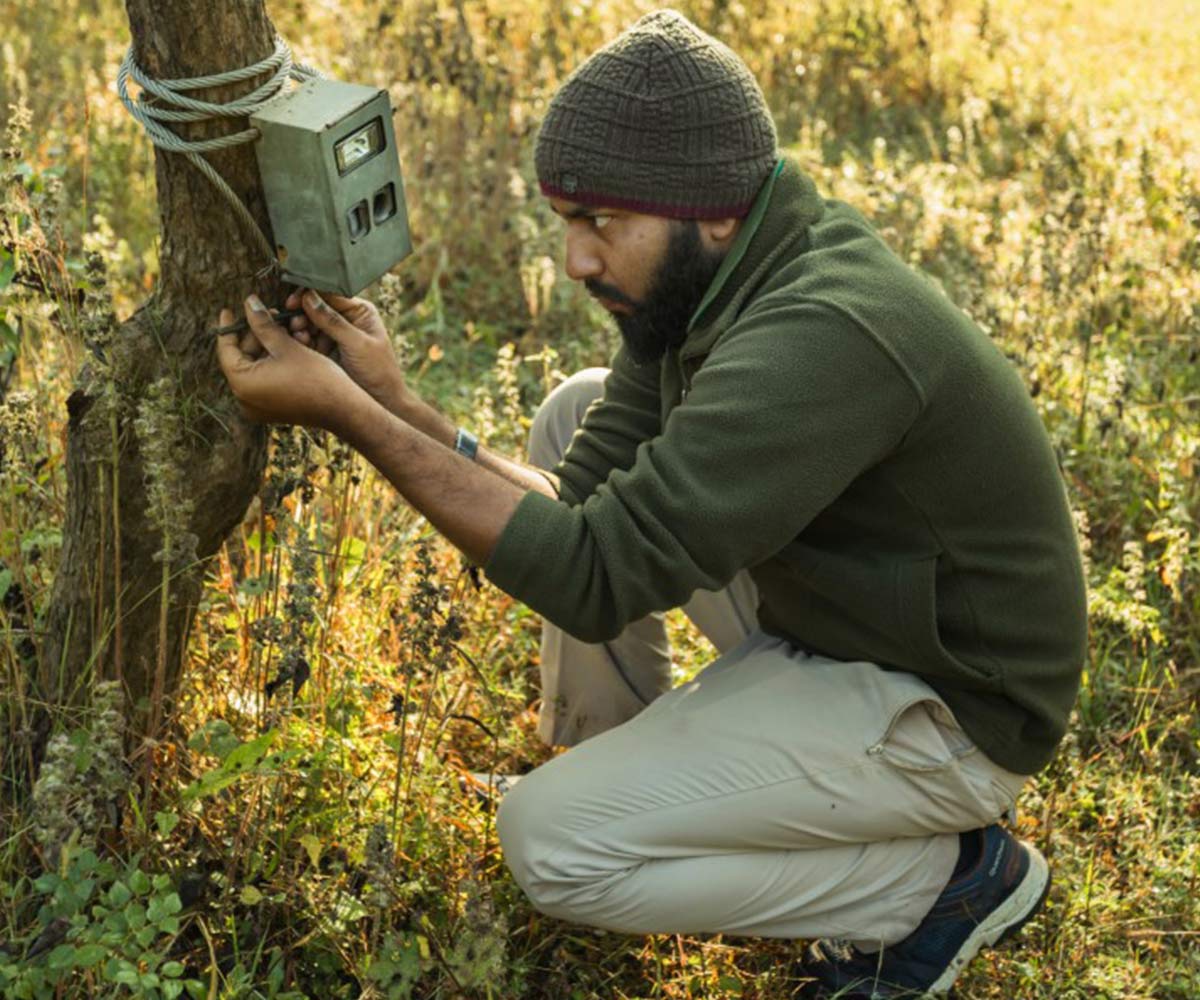
A naturalist collecting data from the camera trap
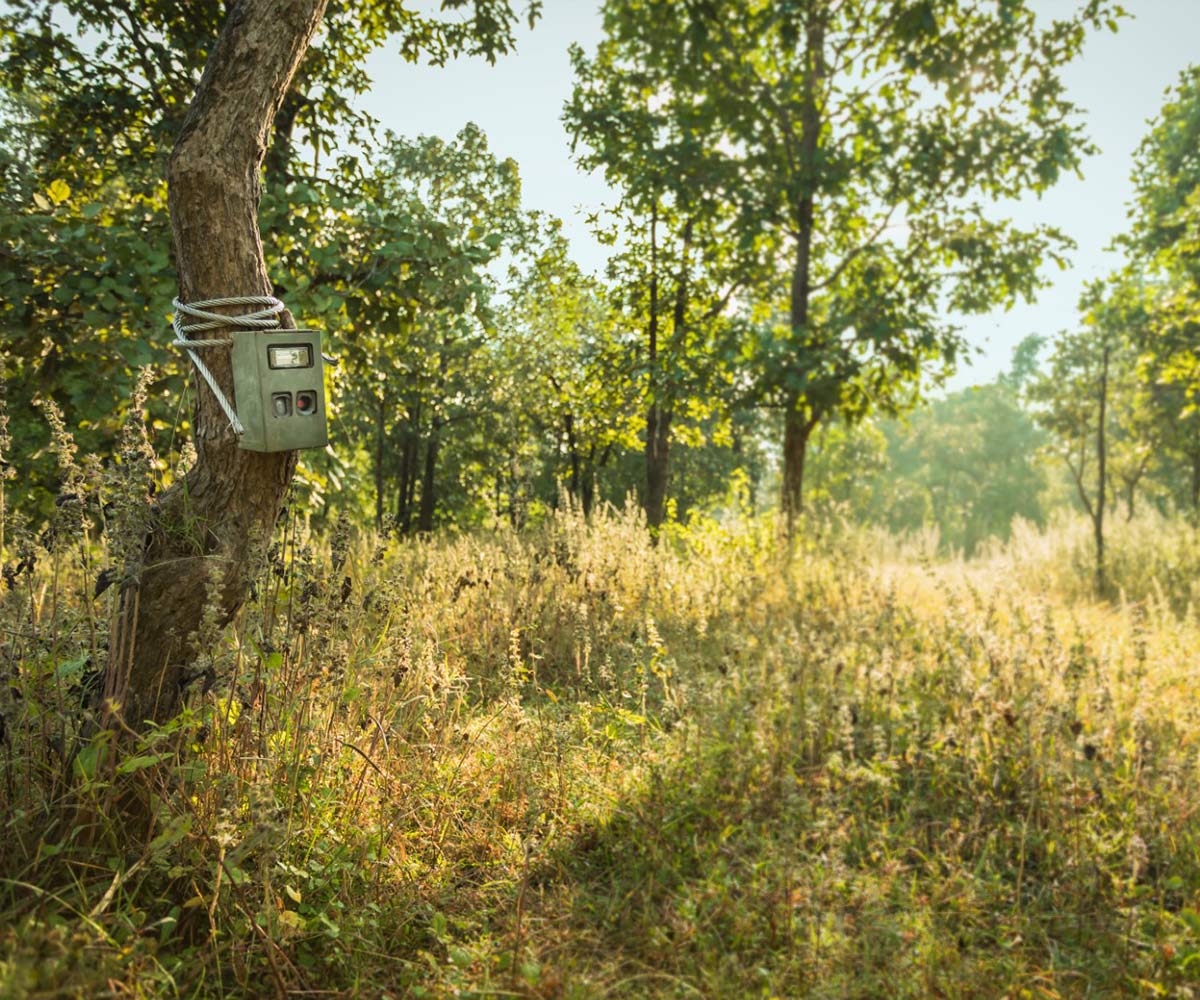
Camera traps inside the lodge premises
We are currently in the process of replacing the single use plastic with environment friendly alternatives. We are providing filtered water at all times to the guests instead of the packages water. There are many other green practises that have been adopted like segregating and recycling the waste etc. We also follow many other practises which we believe are the basics like encouraging the re-use of the bed linens and the towels to guests, water waste management and encouraging reduction of the electricity consumption through various means.
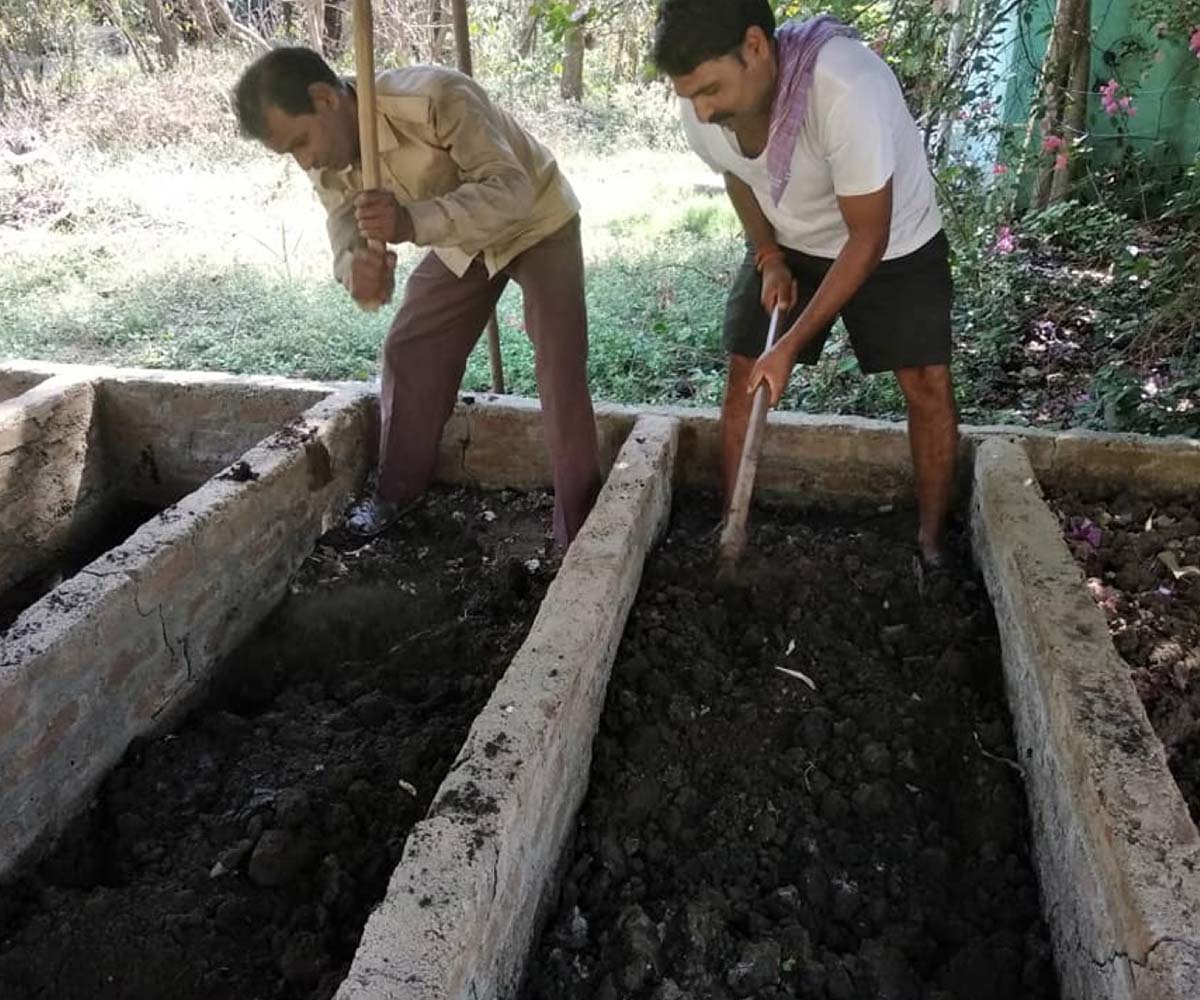
Vermiculture at Pench Jungle Camp
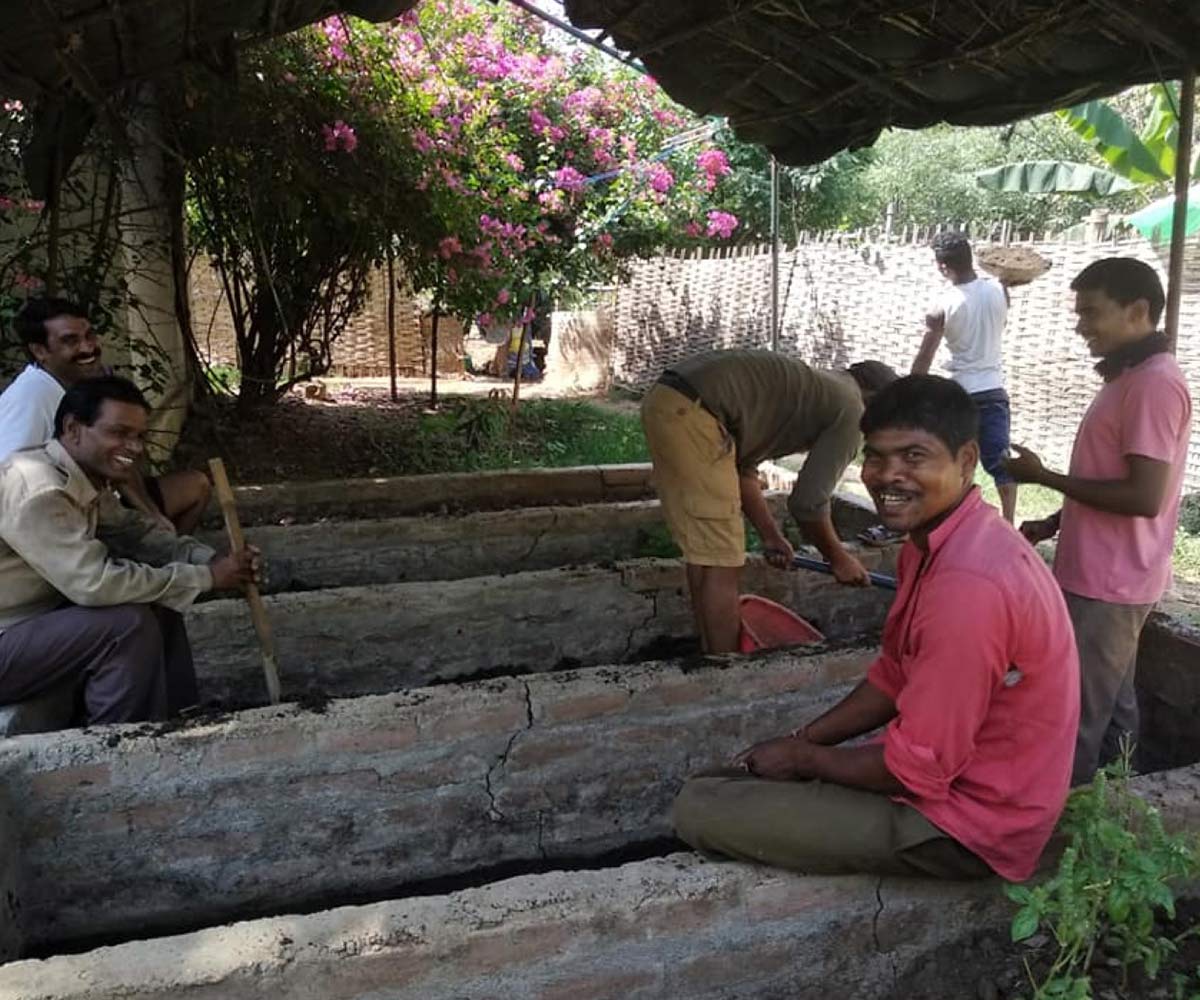
Vermiculture at Pench Jungle Camp
Our culinary philosophy rests on the tenets of ‘Eating Local’. The menus at the lodges have been designed to be celebratory yet reflecting on the local cuisines. We believe that experiencing local cuisines is intrinsic for an immersive experience into local cultures. Most of the ingredients are either grown in our small but budding kitchen gardens or are sourced from nearby villagers at fair prices. This ensures that the food served at your table is fresh, wholesome and flavourful.
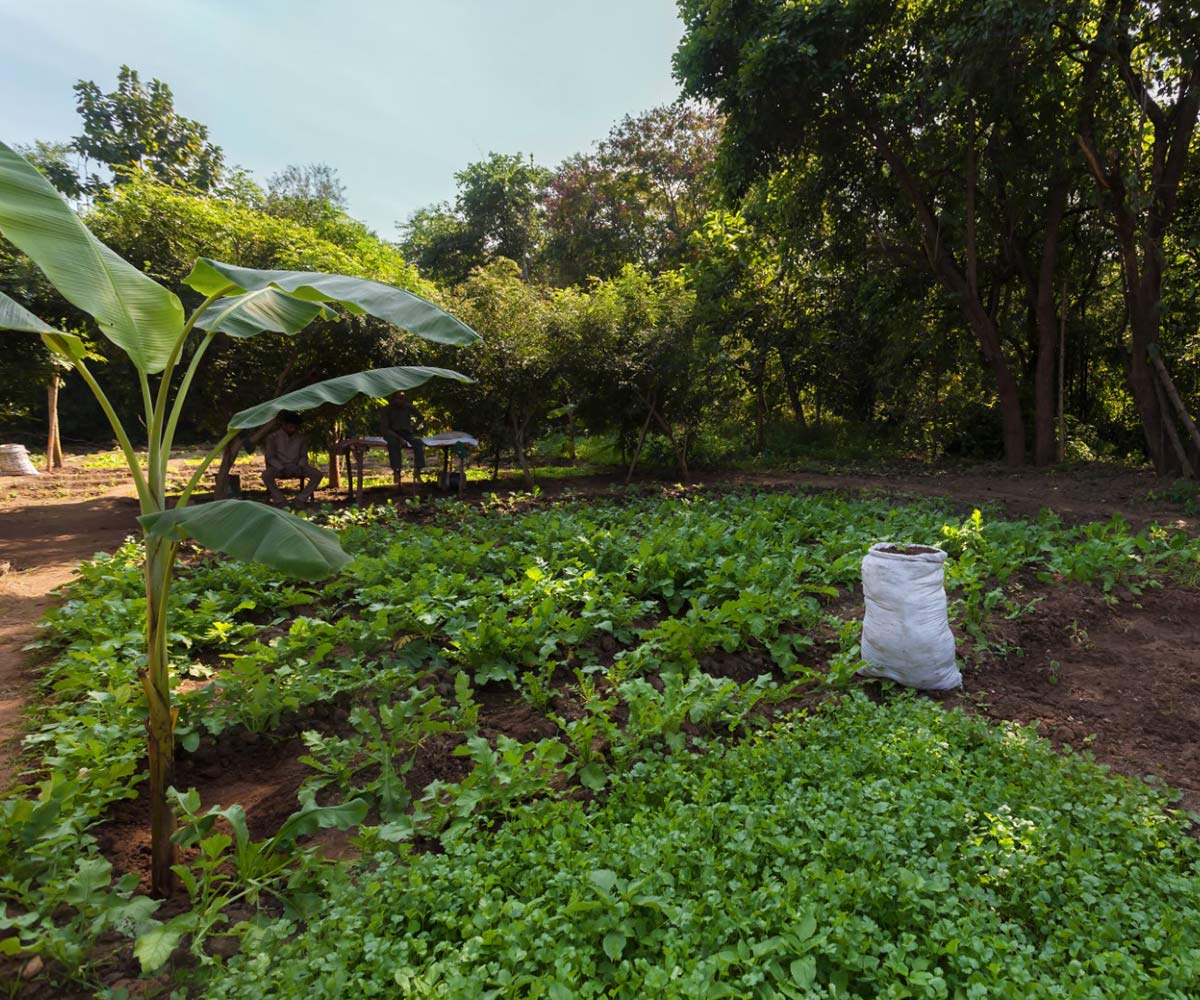
Kitchen garden at the lodge
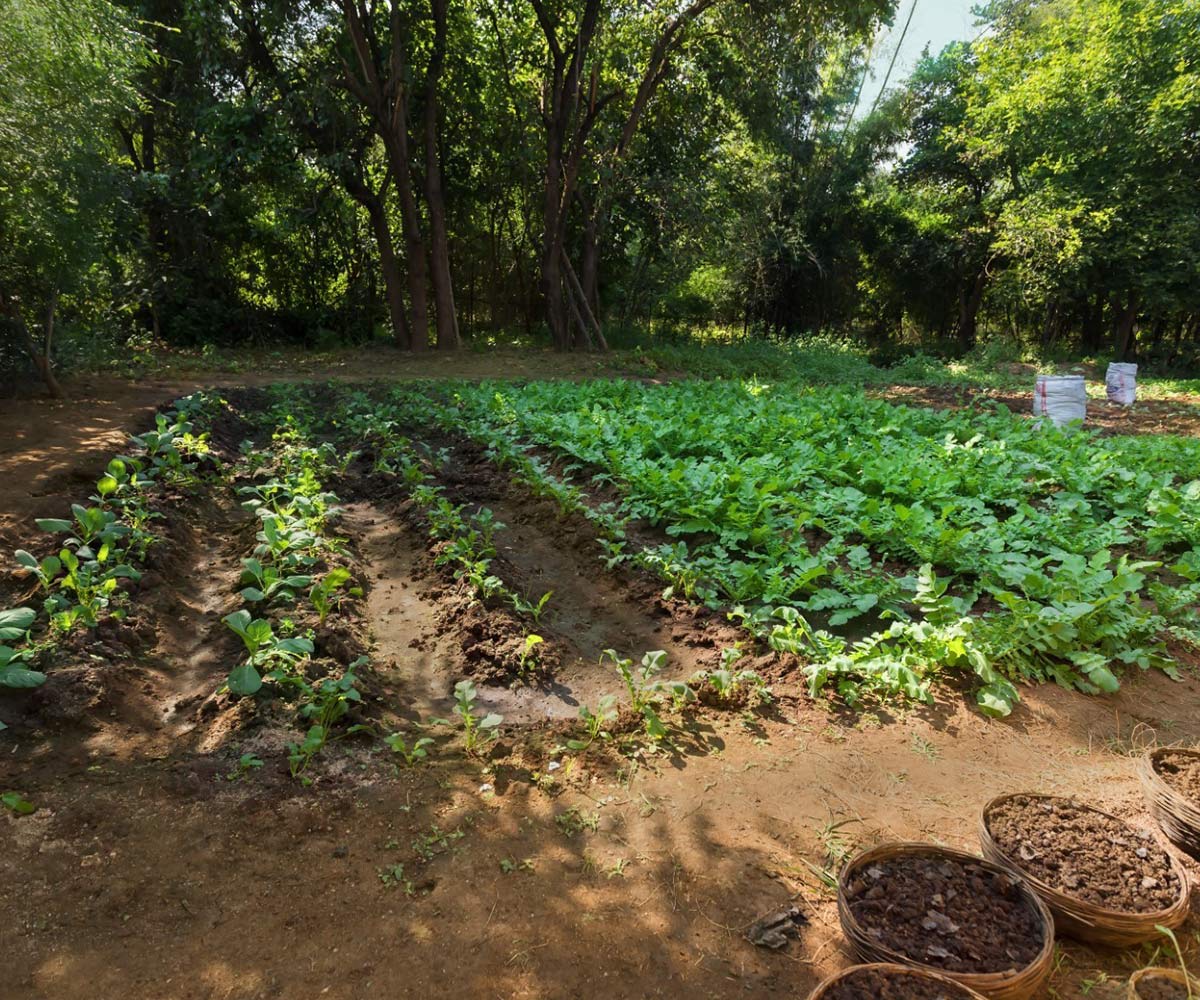
Kitchen garden at the lodge
“Never doubt that a small group of thoughtful, committed citizens can change the world; indeed, it is the only thing that ever has.”
– Margaret Mead
Customer
We believe that through his/her/ their visit, a customer is not just contributing to the lodge and the national park but giving us a chance to foster opportunities for them to appreciate wildlife and the environment. We see our clients as potential brand ambassadors for wildlife and nature. Through all our interactions, whether its the reading materials in the rooms and libraries or the interaction with in house naturalists, we try to educate and convert a leisure tourist into a passionate wildlifers.
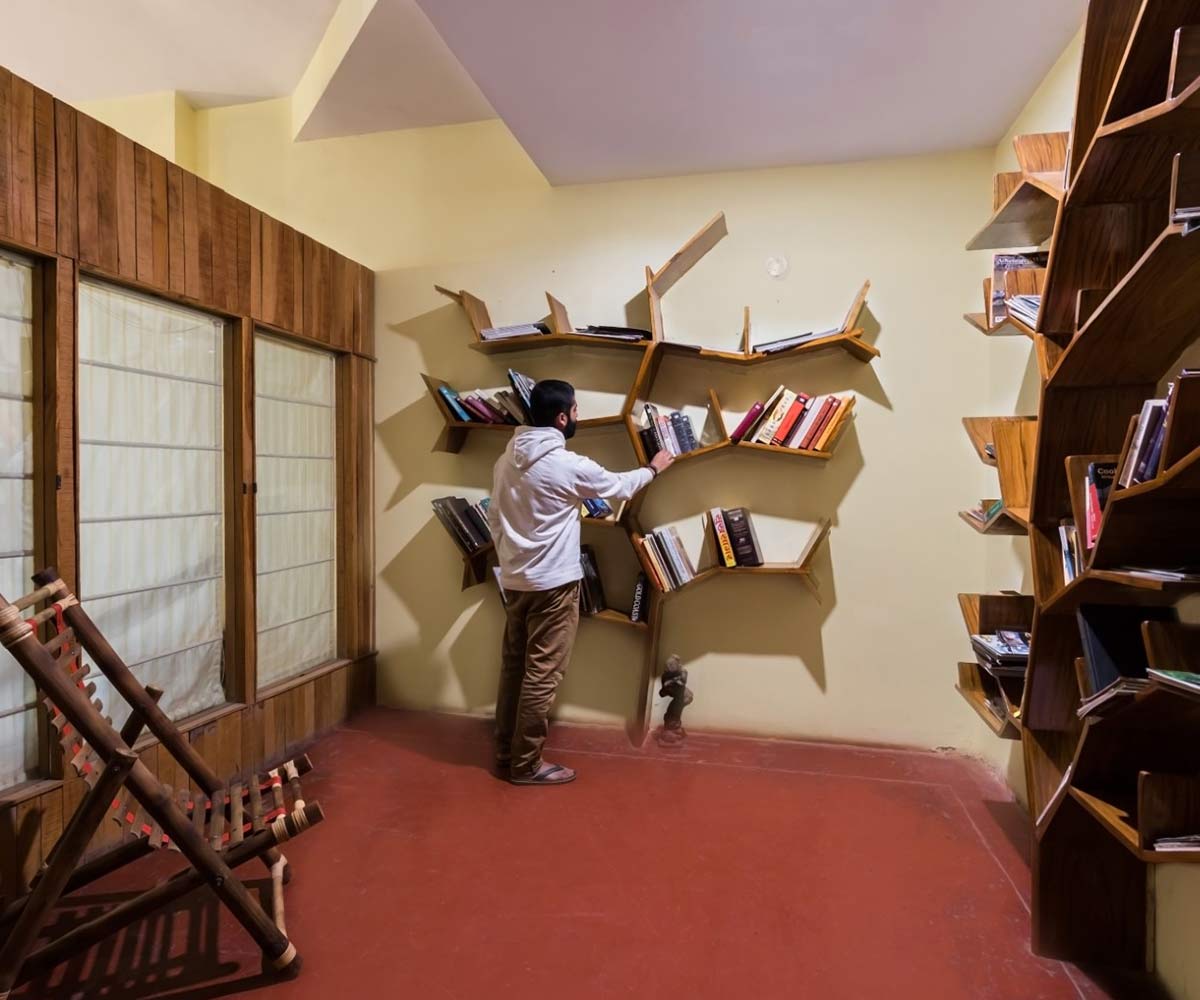
Library inside the lodge
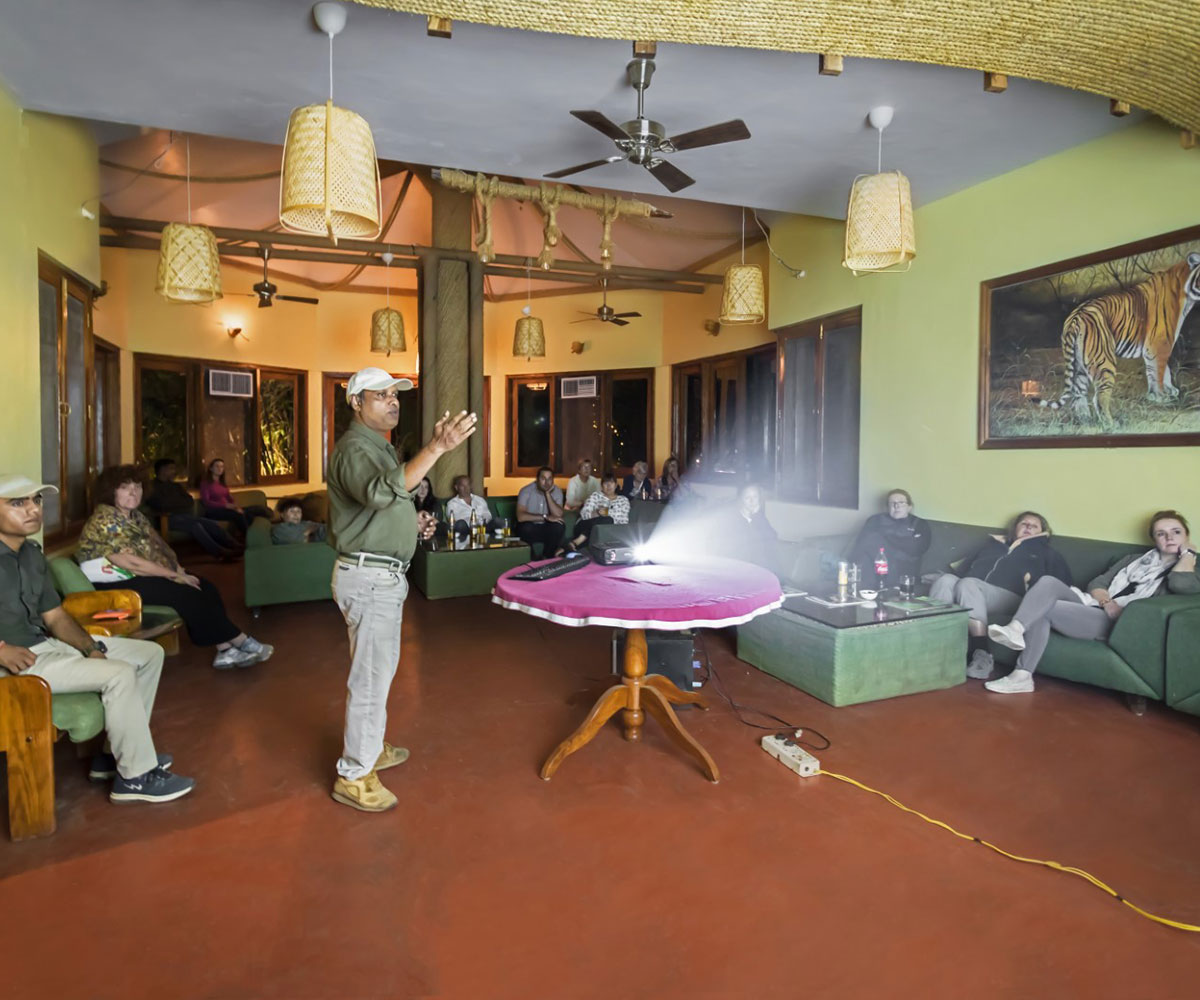
Presentation by naturalists on the flora & fauna of the parks
We also make the experience more immersive by introducing low impact activities like nature walks, cycling and village visits. The in house guides and the naturalists also use story telling and interesting facts to create an interest in the guests especially the young ones. We aim to provide a holistic wildlife experience with unparalleled service and hospitality.
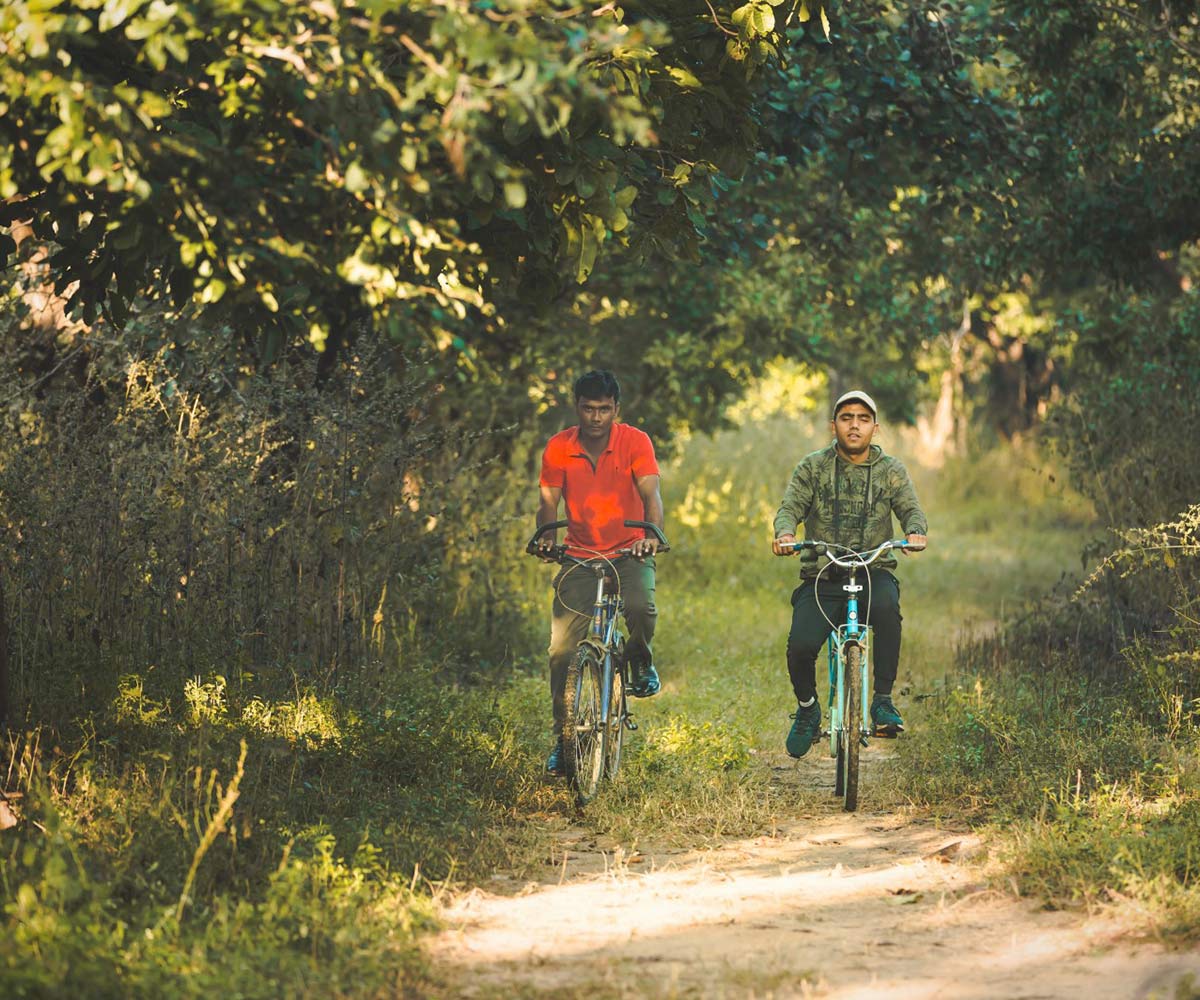
Guided cycling along with in house naturalists
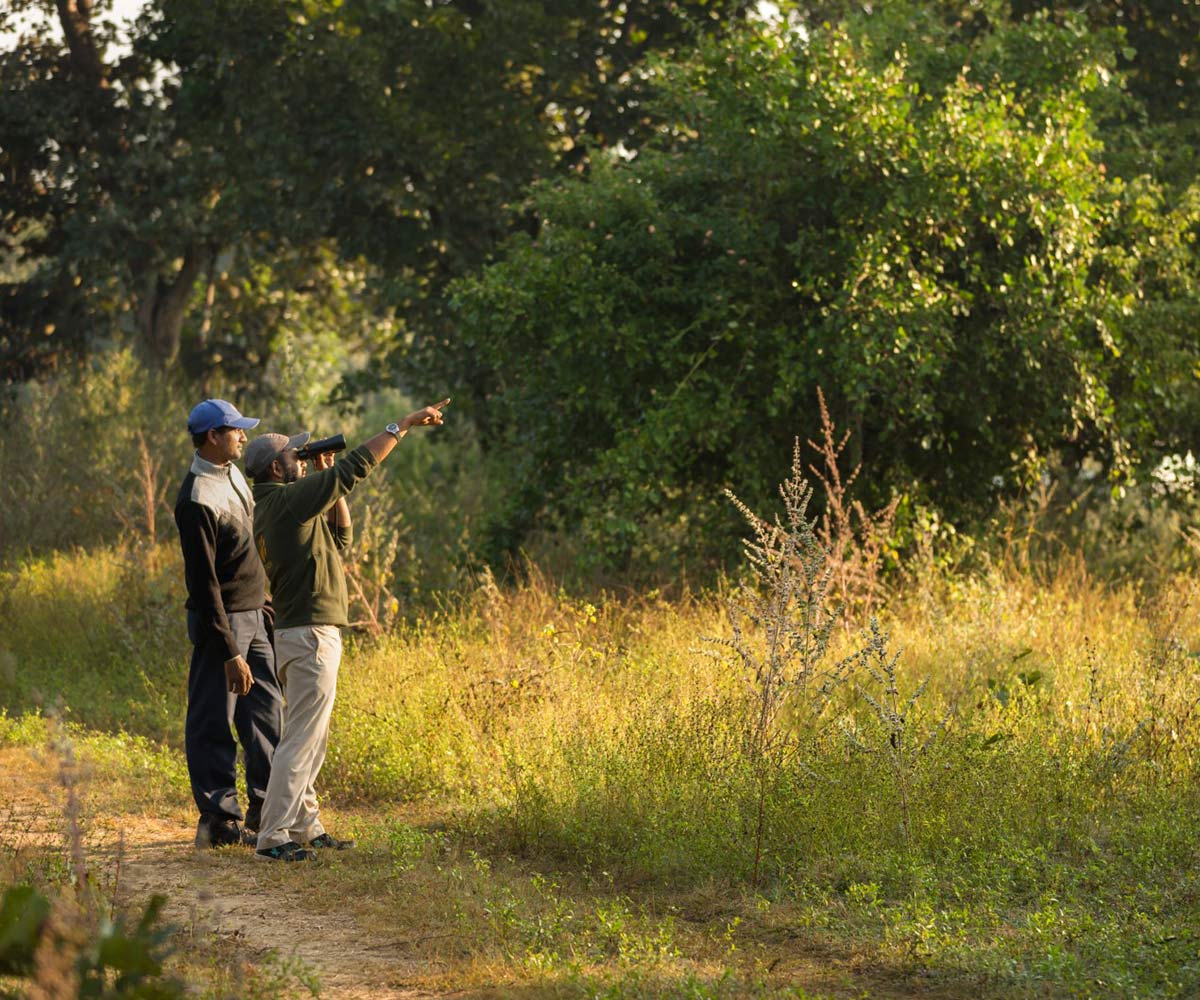
Guided nature and birding trails
“Wherever you go becomes a part of you somehow.”
- Anita Desai
Community
It is our belief that conservation of wild habitats and wildlife in India is only possible if it has an economic and social incentive. The communities of the regions should be participants and beneficiaries of the wildlife tourism as it creates vested interests.
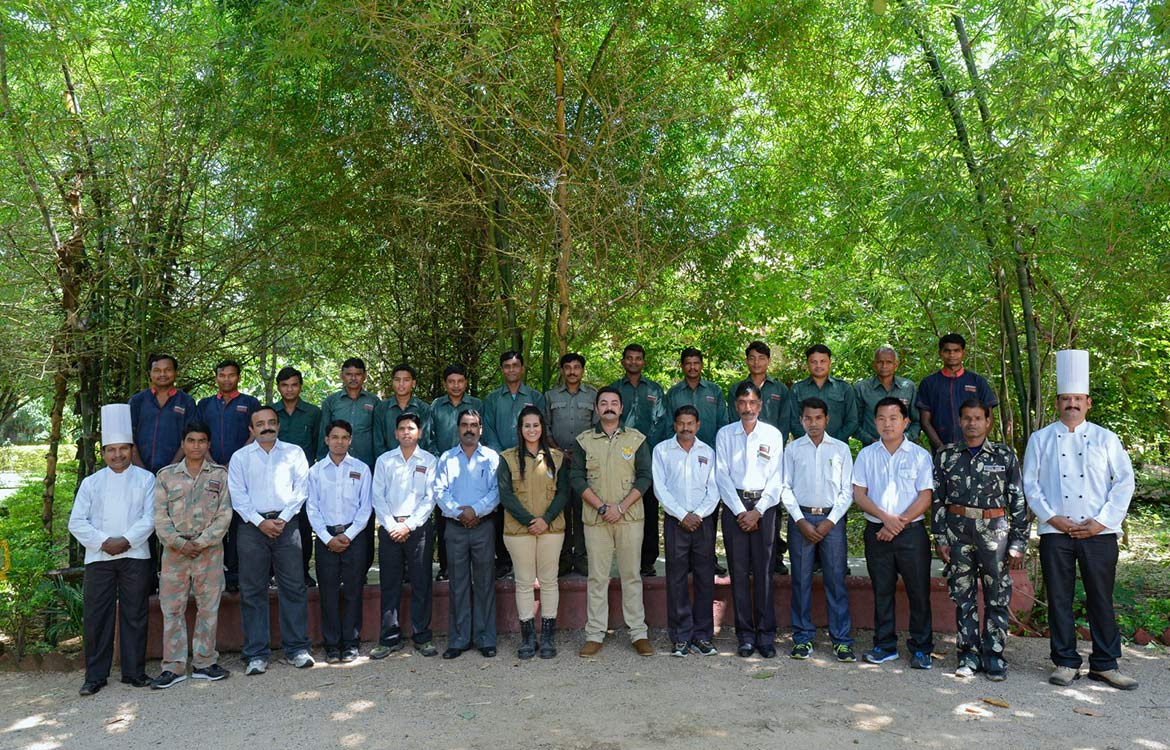
The team at Pench Jungle Camp
We try to employ and procure most of whatever is possible from locals only. Over 90% of our staff is from the local community itself. We try to create opportunities with training sessions for up-skilling so that they can grow in their areas of interest. The materials and general supplies including paintings for our interiors are sourced from the surrounding areas. The souvenir shop too serves as a place to sell the paintings and other handicrafts sourced from NGOs and local artisans.
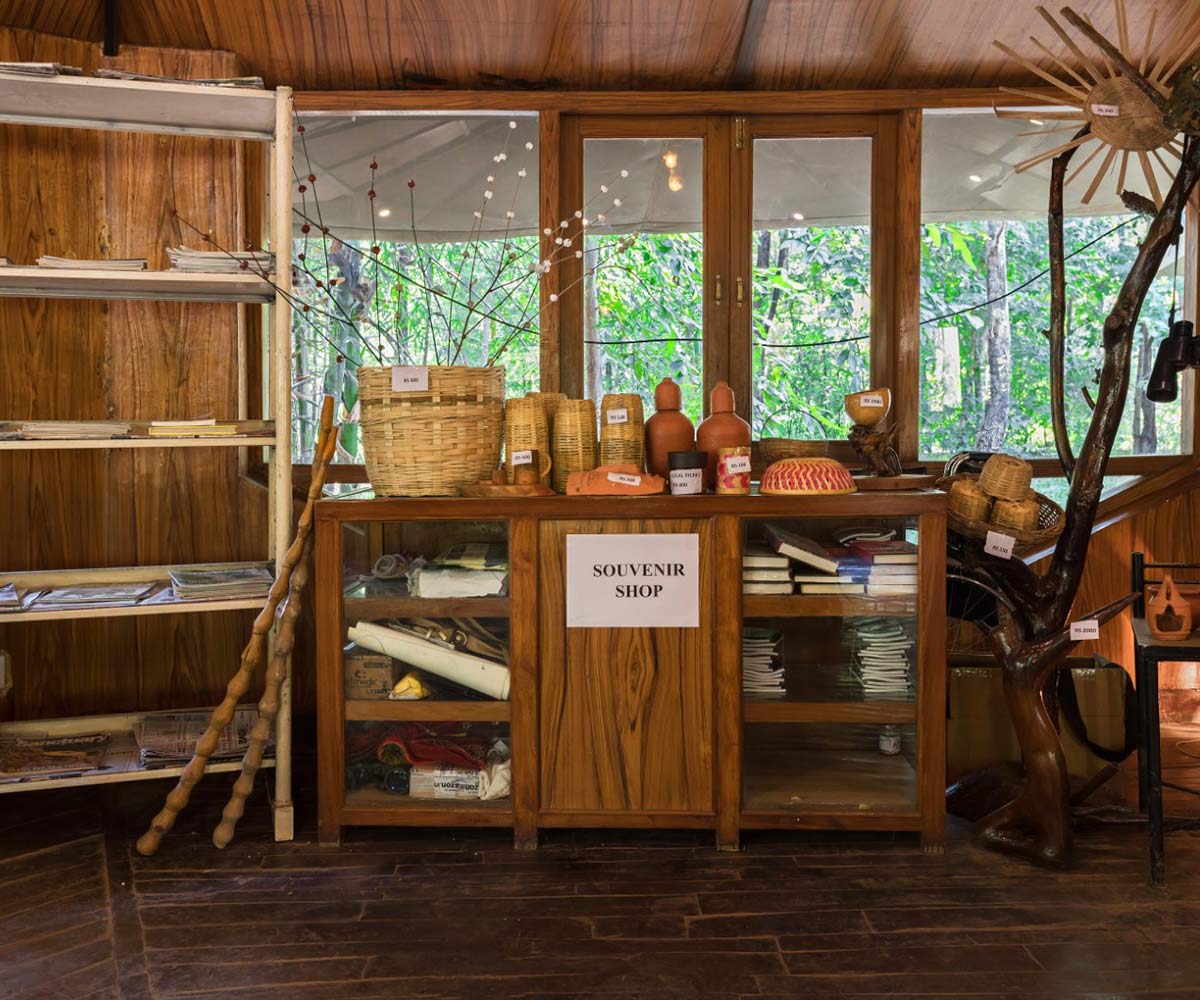
Souvenir shop at the lodge with local handicrafts, clay items, etc.
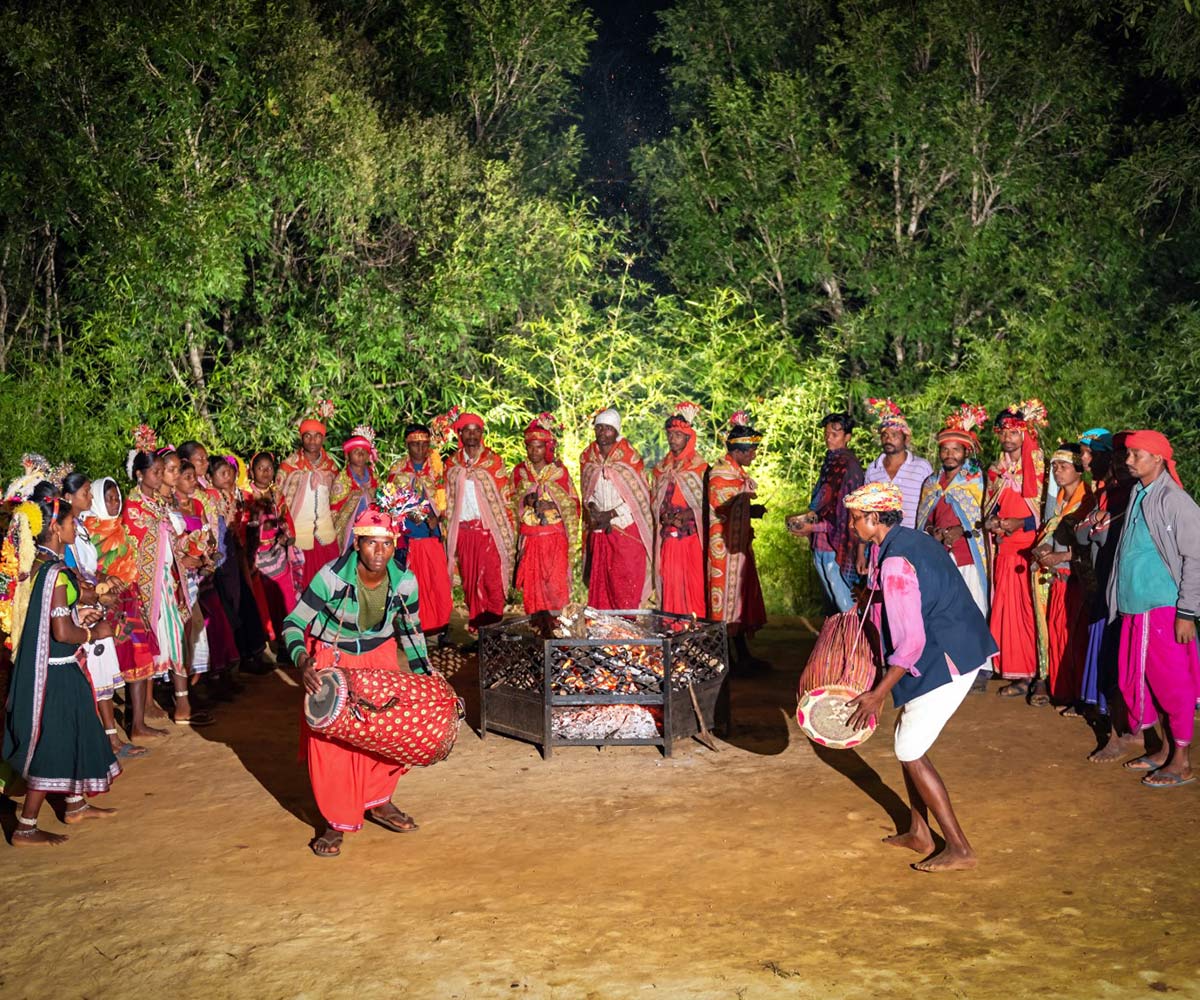
Baiga dance showcased by the locals
The guests are encouraged to visit the nearby villages and interact with artisans which promotes their work and fosters cross cultural understanding and respect. We encourage the locals to share their cultural practices and certain native skills with the guests.
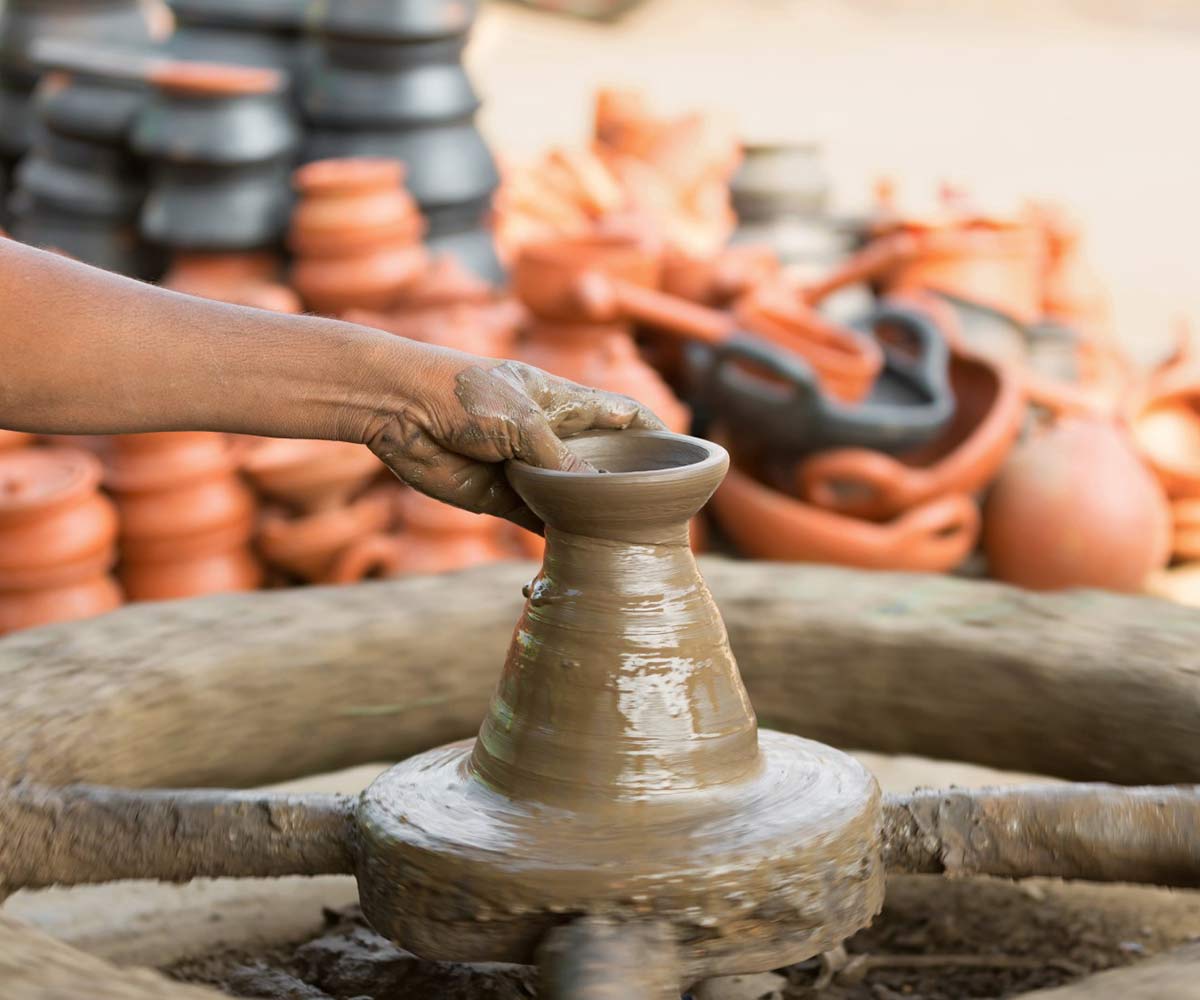
Village visits
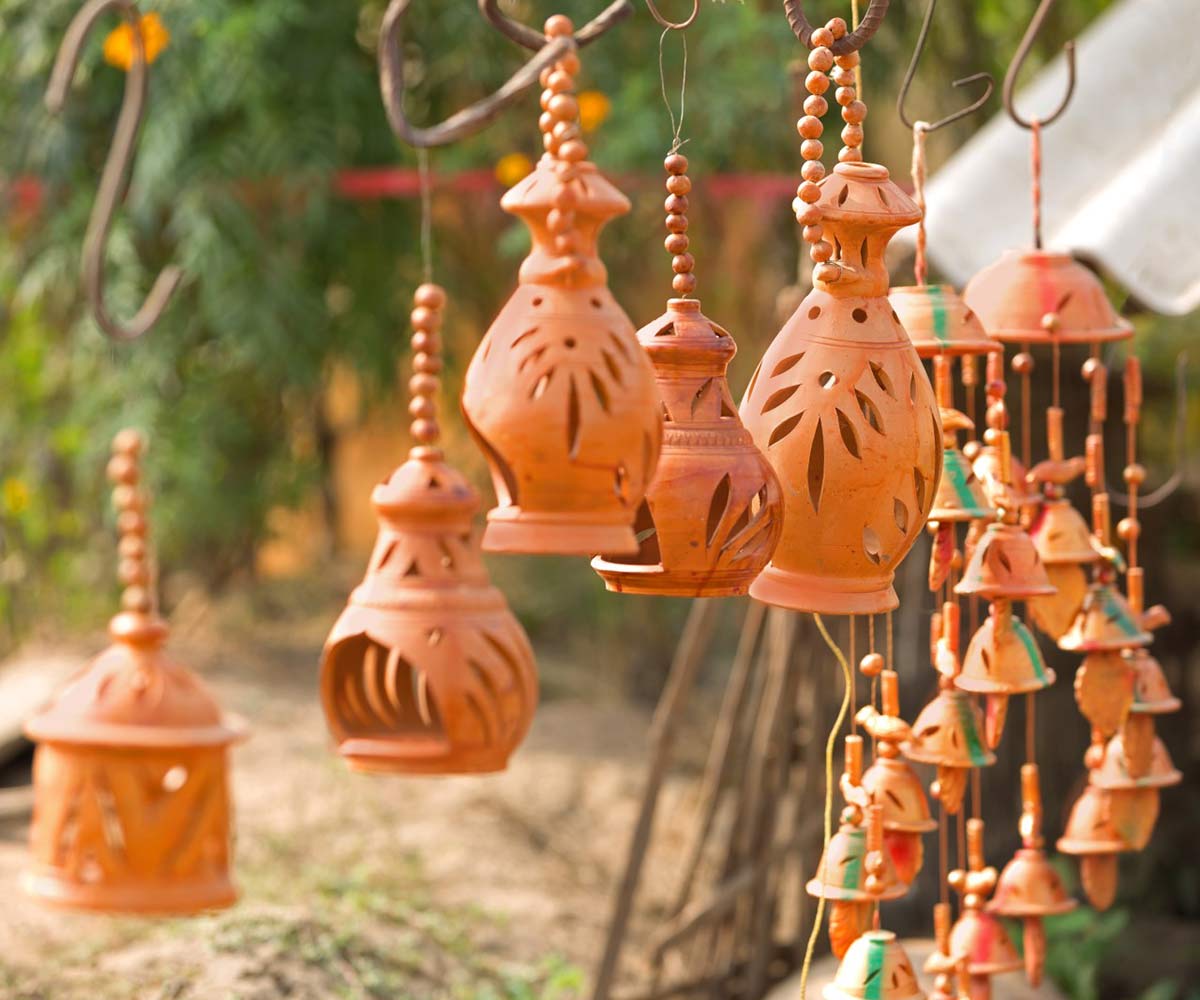
Locally crafted wind chimes for sale
We organise medical camps and other community driven initiates for the villages around our lodges. There are also activities and walks organized in the local village schools for the children of the area. Through these small efforts, we aim to educate the children to care about the environment. We aim to strengthen our outreach programs in the coming years.
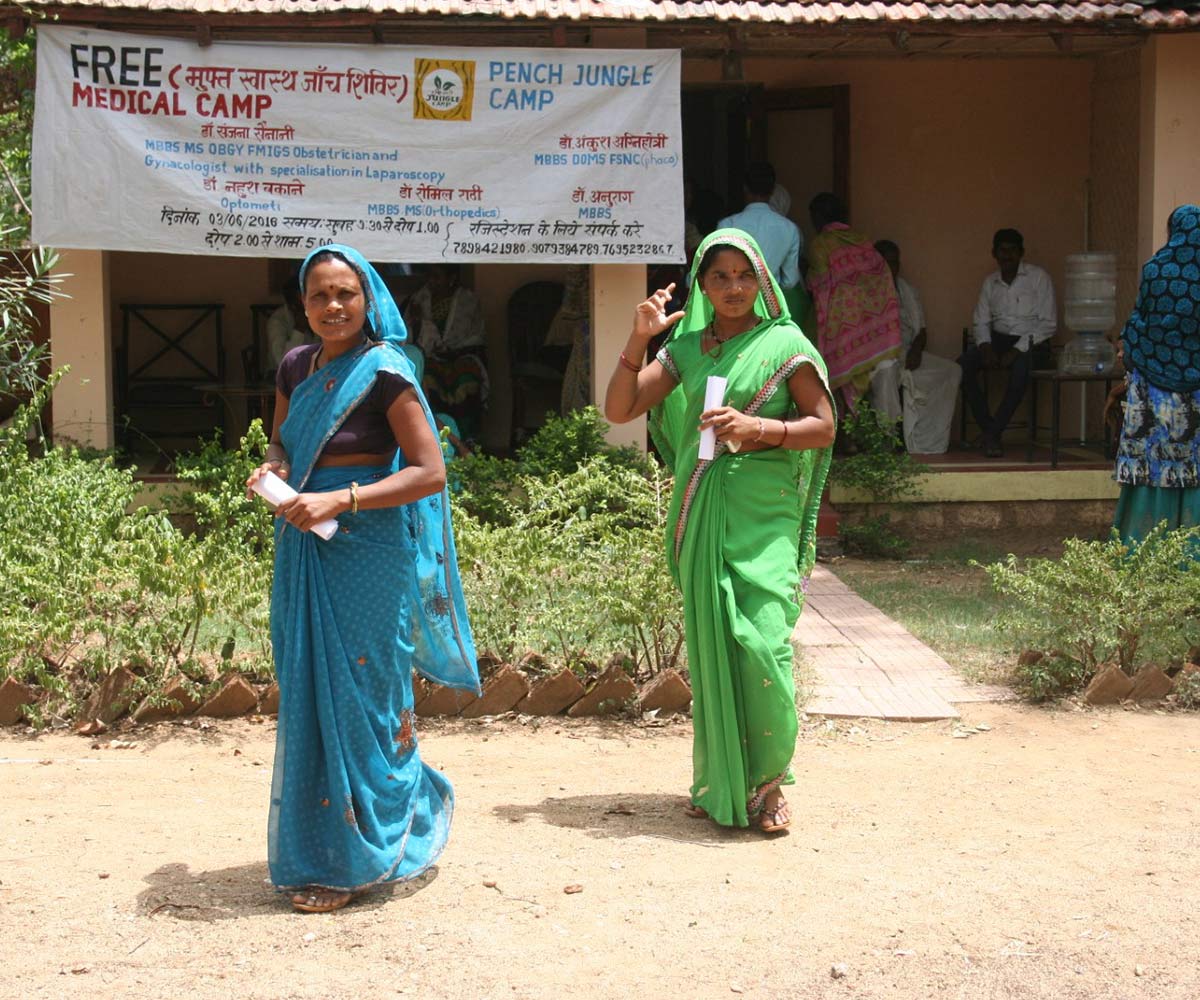
medical camp organised by Pench Jungle Camp
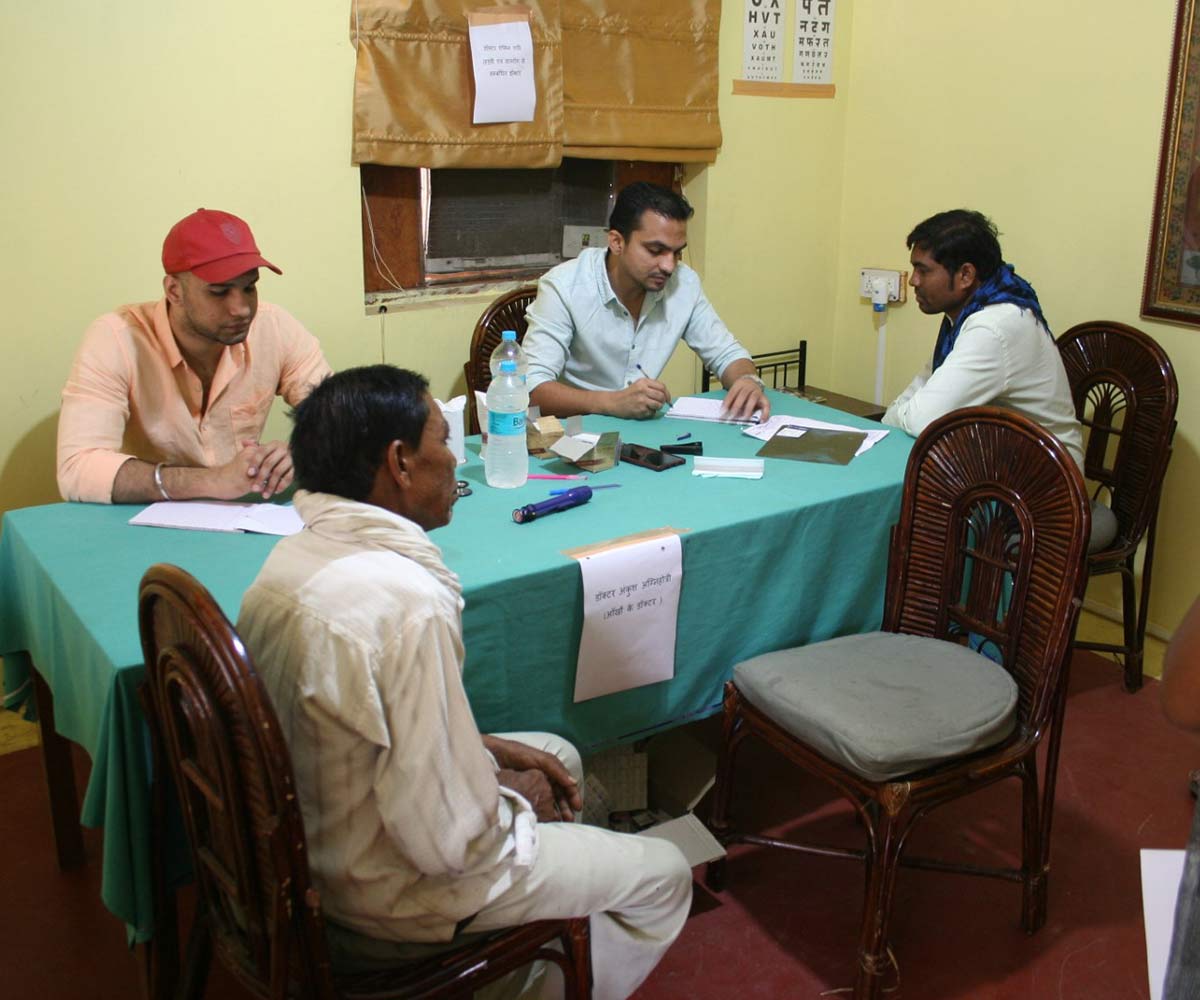
medical camp organised by Pench Jungle Camp
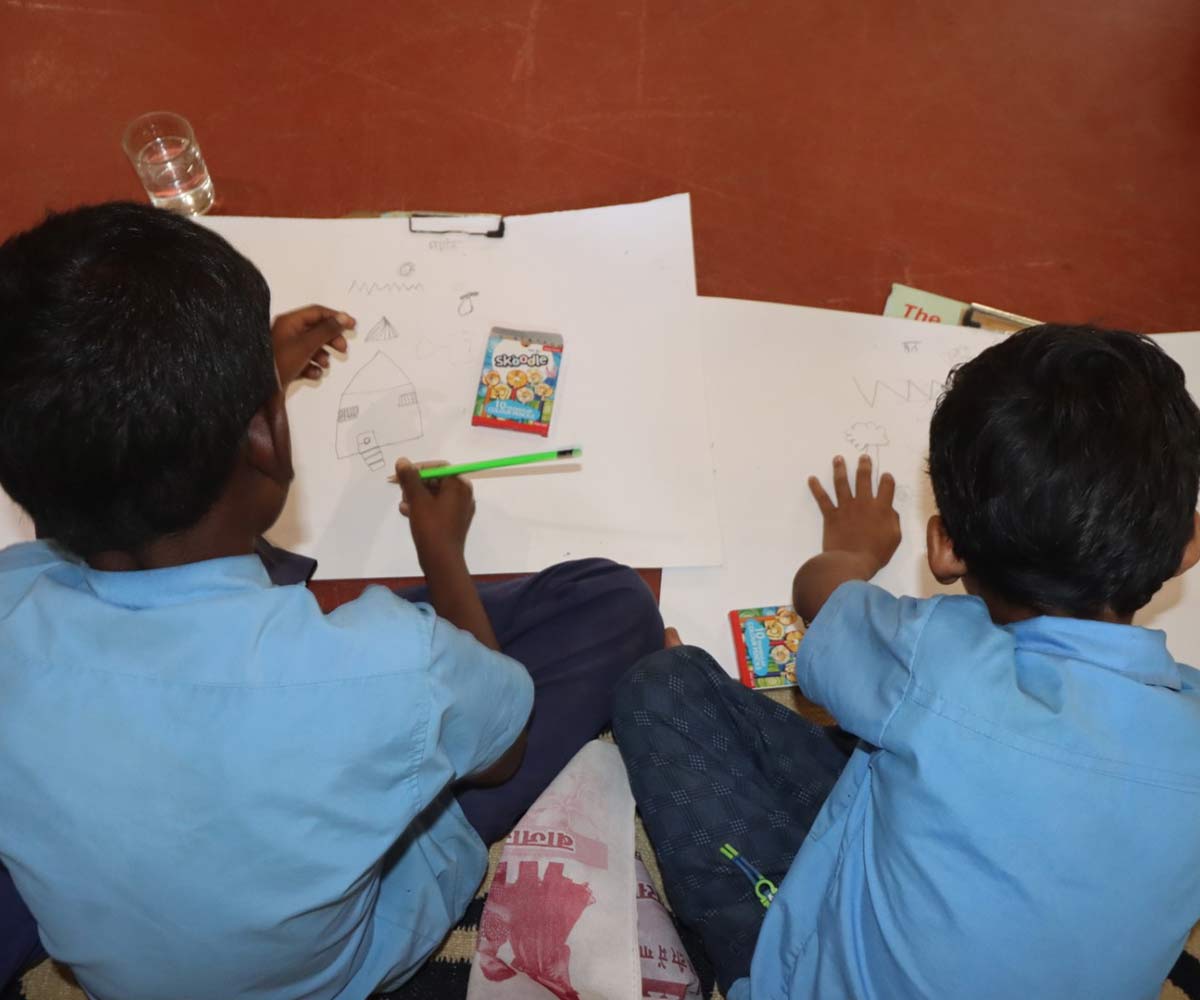
Painting competition for local school kids
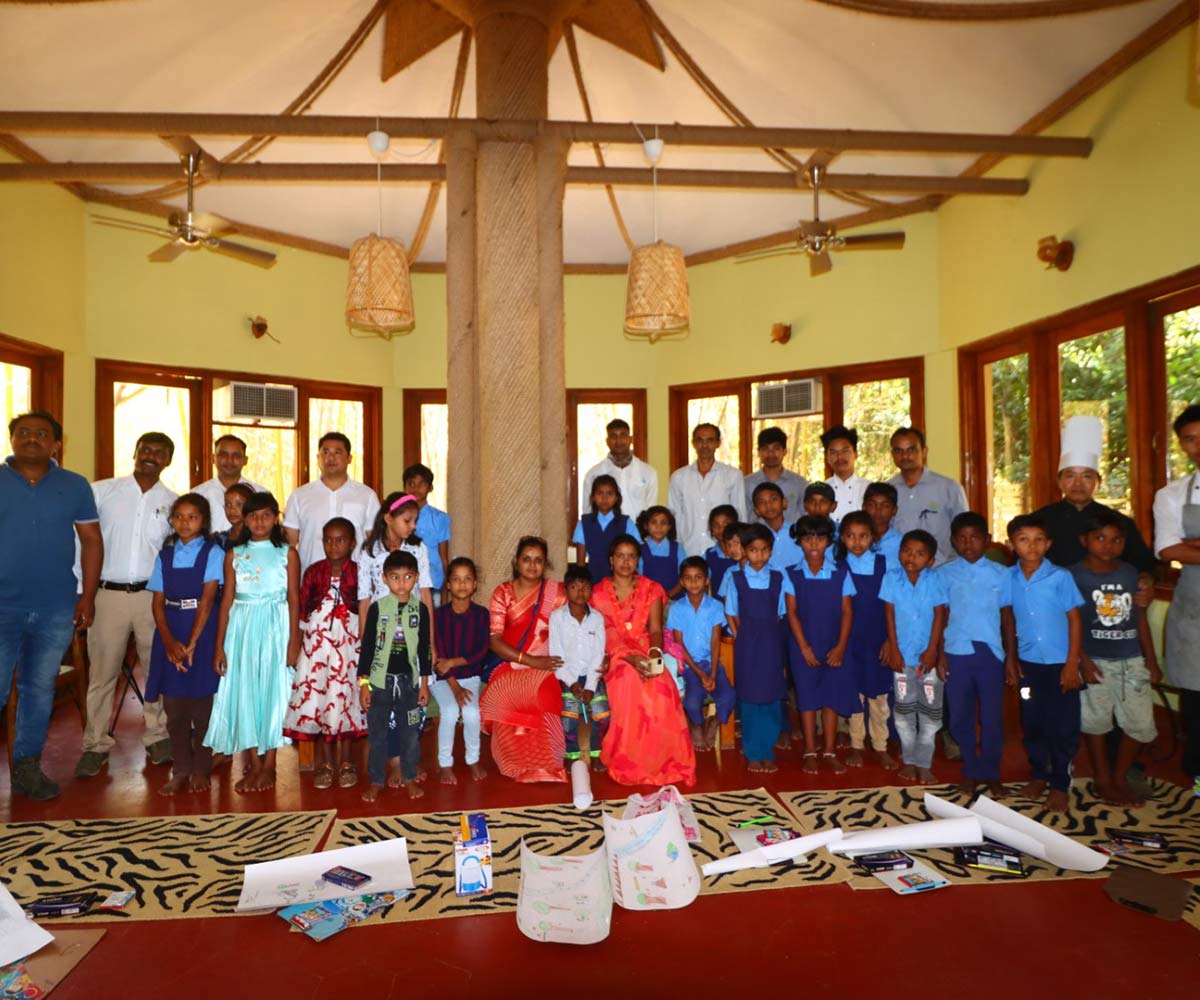
Award ceremony and the group photo
“Ultimately conservation is about people. If you don’t have sustainable development around these wildlife parks, then people will have no interest in them, and the parks will not survive.”




